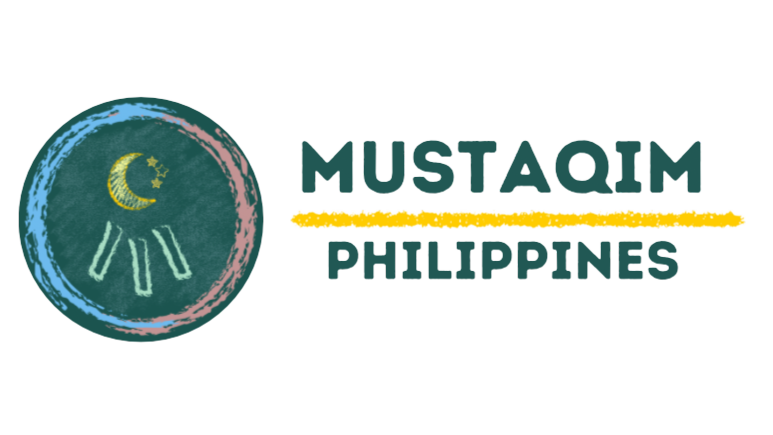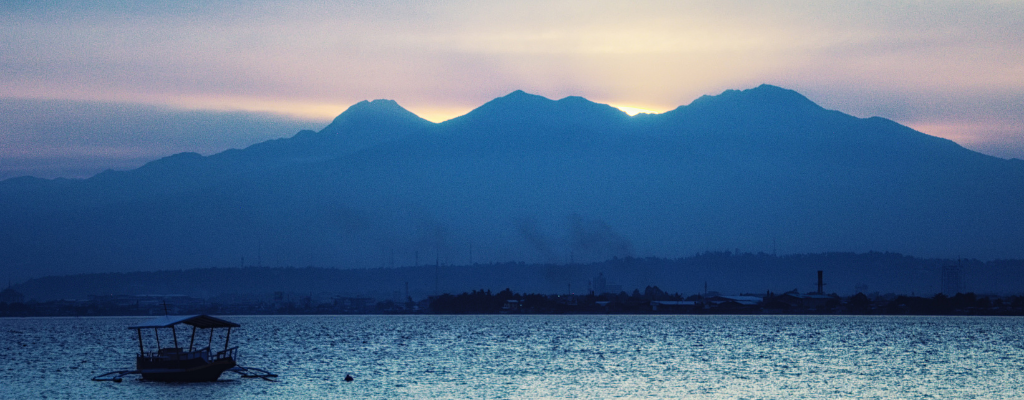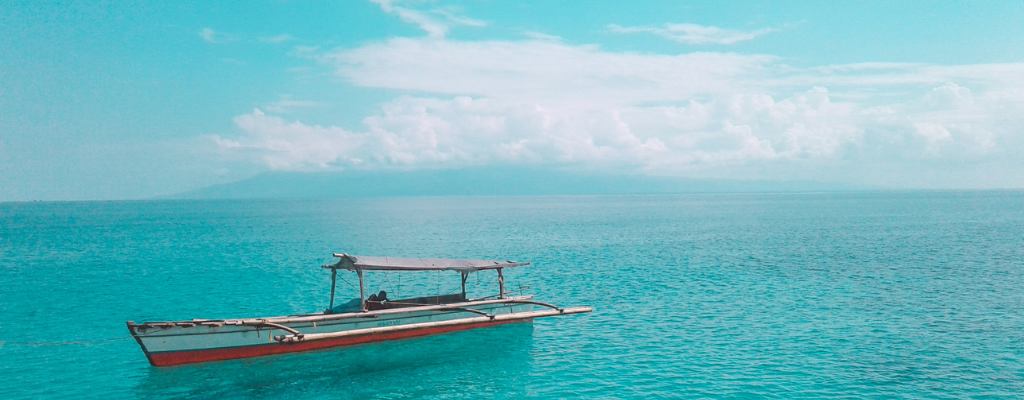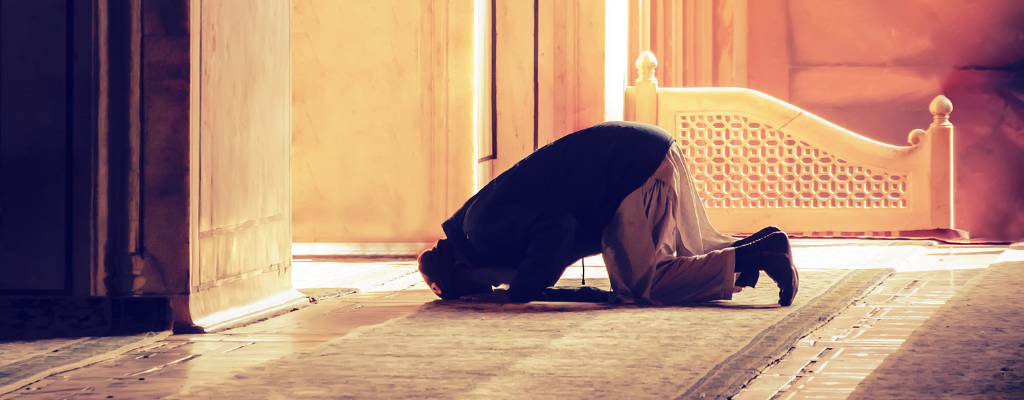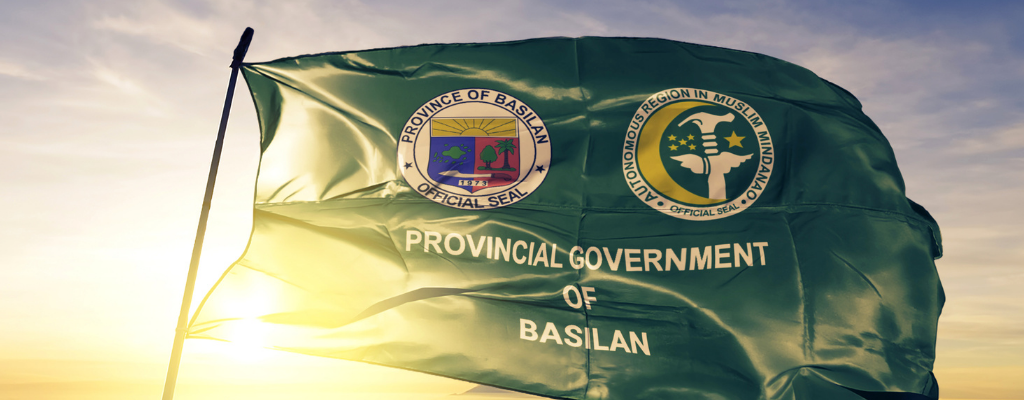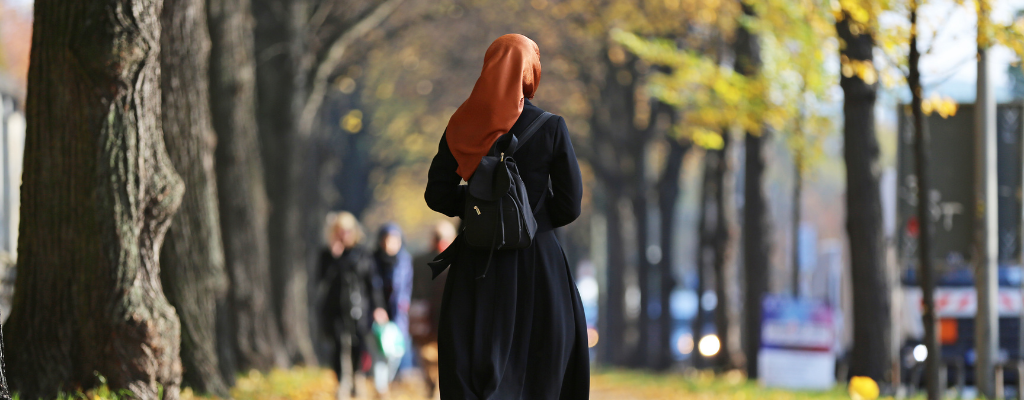"Sea Gypsies" - The Sama
Sama-Bajau also called the “Sea Gypsies” or the “Sea Nomads” dominates the islands of Tawi-Tawi in southwestern Sulu archipelago, Philippines. They are also found in the islands of Sulu Archipelago, coastal areas of Mindanao, Northern and Eastern Borneo, Sulawesi, and throughout Eastern Indonesian islands. Sama have at least 20 subgroupings, these 20 subgroups are named after the place where they live, as well as their language differ depends on the place or an island where they live. Just like any other tribe, conflicts are the main reason why people flee away from the native land, Sama-Bajau migrated to northern islands of Philippines and to Malaysia, which result to their increase in population of ethnic group in the Malaysian state of Sabah.
Sama tribe is divided into two basic categories: Sama Diliya or the land-oriented Sama and Sama Dilaut or the sea-based Sama or sea-gypsies. However, these two basic category names do also differ depending on how the neighboring countries and or other tribes call or address them, tribes who get used living with Sama communities. For example, the Tausug tribe calls the land-oriented Sama by the term Samal while, the sea-based Sama is called Bajau; in Malaysia, they call Sama as Bajau, the land-oriented Sama is called Bajau Darat while, the sea-based Sama is called Bajau Laut; in Indonesia, Sama is called by Bajo.
When we hear the term Sama, what comes into our mind first is that they are sea dwellers and their lives is mostly connected with the sea, and they live nearby the sea in a house made out of wood and bamboo and some other lives on their boats moored across the region. The sea-based Sama’s primary economic activities is fishing and collecting seaweed and shells. Somehow, there are also some of them who are purely land-based and farming is their primary source of living and they can be found in Western Sabah. Rice, cassava, corn and bananas, fruits and vegetables, which are mainly source of energy for them to work on their day-to-day life. They also grow coconuts for commercial production of copra.
There are also particular communities of Sama that are specializing in constructing of boats, weaving of mats, molding of pots, fabricating metal works and many others. In 17th and 19th century, trade played an important part of the Sama economy, they are trading sea cucumber, which helped them travel and transport goods from Southern Philippines and Eastern Indonesia.
Not every Sama is believed to be Muslims, in most cases, they believe in what they prefer to call “omboh” where they believe that the spirit of the dead can speak with the Supreme God, they definitely ask for everything from wellness, getting healed from being sick, and from harvesting enough fish from sailing their boats along the ocean and many other things. Those Sama individuals who believes that omboh eases and relieves every difficulty they have, also believes that these challenges that they are facing in life also comes from omboh. In order to please and in respect with omboh the Sama are offering tobacco, bitter nuts, colored lime, cooked rice with turmeric and molded into a mountain-like, fish, some fruits, and asked to put ease in whatever situation that they are facing. The sick one who is believed to be cursed by omboh can only go to the hospital once permitted by the traditional medical specialist who is believed to have asked omboh for forgiveness in advance.
Modernization has played an important development in the life of the Sama in general, their educational and economic status has changed, there are Sama Dilaut who now choose to live their life and built a house in the land instead of turning their boats into a house, they are starting to send their kids to school even if life is kind of difficult. The discrimination may still be around and felt by the Sama tribes from the people around them, so long that they now to themselves that they are doing their best to protect themselves without stepping on their fellow human’s rights and be a good example to their next generation is enough reason for them to be good in their own way.
References:
Gorlinski, V. (2016, January 17). Sama. Encyclopedia Britannica. https://www.britannica.com/topic/Sama-people
Hadji, M. (2010). Oral Histories and Traditions of the Sama Dilaut : Their Way of Life in Sitangkai, Sulu Archipelago, the Philippines (<Special Theme>Reconsidering Social History of Maritime Worlds in Southeast Asia : Perspectives from the Sama-Bajau). Retrieved 19 July 2021, from http://id.nii.ac.jp/1060/00002400/
Hussin, H. (2019). Buwas Kuning (Yellow Rice) and its Symbolic Functions Among the Sama-Bajau of Malaysia - Hanafi Hussin, 2019. Retrieved 19 July 2021, from https://journals.sagepub.com/doi/full/10.1177/2158244019885140
Peoples of the Philippines: Sama - National Commission for Culture and the Arts. Retrieved 19 July 2021, from https://ncca.gov.ph/about-culture-and-arts/culture-profile/glimpses-peoples-of-the-philippines/sama/
SAMA-BAJAU - Bureau on Cultural Heritage - BARMM. (2021). Retrieved 19 July 2021, from https://bch.bangsamoro.gov.ph/sama-bajau/
The Sama-Bajau. Retrieved 19 July 2021, from http://press-files.anu.edu.au/downloads/press/p69411/mobile/ch13s04.html
Who are the Maguindanaoan?
The Bangasamoro Government, through the Bangsamoro Commission for the Preservation of Cultural Heritage gave us a meaningful discussion on the Maguindanaoan.
The Maguindanaon, or Maguindanaw for some, live in the areas of North Cotobato, South Cotobato, Sultan Kudurat, Zamboanga del Sur, and Maguindanao; the latter having the largest concentration. Maguindanaon means “people of the floodplain” as they primarily inhabit the broad Pulangi River valley and delta which occasionally flood.
The Maguindanaon are divided into two principal groups, each with its own dialect and traditional location: The Tau-saIlud (people of the lower valley) and the Tau-saLaya (people of the upper valley). The Tau-saIlud are concentrated in the areas around Cotabato City and extend to South Dinaig. Traditionally, they constituted the Sultanate of Maguindanao based near present day Cotabato City. Their dialect is characterized by more rapid, “harder'' consonant intonations, with preference for using “d” rather than “r” and variations on the use of “l” and “r”. They are renowned as sedentary wet-rice agriculturalists.
The Tau-saLaya, on the other hand, are concentrated in the areas of Datu Piang and extend south to areas which include Buluan. As a group, they constituted the Rajahship of Buayan based near the present-day town of Datu Piang. Their dialect is distinguished by a slower cadence, a drawl, with frequent omission of the consonants between vowels and a preference for using “l” rather than “r”, periodic variations of “r” for “d” and some differentiated vocabulary. Their primary means of livelihood is semi-sedentary agriculture and growing corn and upland rice.
Source: https://bch.bangsamoro.gov.ph/bangsamoro-cultural-heritage/bangsamoro-tribes-muslim/maguindanaon/
Who are the Meranao?
The Bangasamoro Government, through the Bangsamoro Commission for the Preservation of Cultural Heritage gave us a significant discussion on the Meranao.
The Meranao, or the Maranao, inhabit Lanao del Norte and Lanao del Sur in Mindanao. The name Maranao translates to “People of the Lake”, after their traditional territory in the area surrounding Lake Lanao in the Bukidnon-Lanao Plateau.
According to the early written genealogical documents Salsila, this term generally refers to the native people living and surrounding Lake Lanao. The lake area is the home of the Meranao which is located in North Central Mindanao, approximately 135 square miles in area and is situated 2,300 feet above sea level. They are one of the largest Muslim groups in the Philippines, with the concentration areas being Marawi City, Lumba-a-bayabao, and Bayang. The Meranao are a splinter group of the Maguindanao who embraced Islam; families tracing their religious origins to Sharif Kabunsuan, who introduced the religion to the region. Communities are clustered around a Masjid and a torogan, a royal house belonging to the preeminent economic household in the area. Aside from exotic textiles, metalwork, and woodcraft, the torogan structure is the most significant and spectacular example of Filipino secular architecture.
As a people, the Meranao are widely distributed and contribute significantly to the market and trade industry. For instance, the awang (dugout boat) used primarily in Lake Lanao is both unique and extremely ornate. Textiles, on the other hand, symbolize the socio-economic rank of the wearer through the intricacies of the design motifs woven into the fabric, as well as, the richness of the colors used.
The Meranao villages are composed of several families living in homes with walls for partition. They are allowed to be members of different villages simultaneously, without fear of recrimination as outcasts due largely to the accepted bilateral relationships. As transients, they’re found in other parts of the Archipelago. Primary subsistence of the Meranao people consists of dry rice cultivation in hilly areas; intensive wet rice in flood plains; and some corn, sweet potato, coffee, cassava and peanuts. To supplement their agricultural harvests, they also incorporate fishing.
Source: https://bch.bangsamoro.gov.ph/bangsamoro-cultural-heritage/bangsamoro-tribes-muslim/meranao/
Let us get to know the Tausugs
The Bangasamoro Government, through the Bangsamoro Commission for the Preservation of Cultural Heritage gave us a concise discussion on the Tausug.
The Tausug is the dominant Muslim ethnic group in the Sulu archipelago because of its political and religious institutions. The Tausug occupy Jolo, Indanan, Siasi, and Patikul in Sulu. There are also scattered settlements in Zamboanga del Sur and Cotabato, and all the way to Malaysia, which has an estimated Tausug population of more than 110,000.
The word Tausug is a combination of Tau (person) and Suug (the old name of Jolo Island). The present-day generation of Tausugs are believed to have descended from the different ethnic groups that migrated to the Sulu Archipelago.
On their language, the Tausug has adopted the vocabulary of Tagihama, whose locality, the Sultan of Sulu lived and established Buansa, the capital of said sultanate. From this stemmed two dialects - the Parianum, which is spoken by the people living along the coasts of Jolo; and the Gimbahanun which is spoken by those in the interior part.
Source: https://bch.bangsamoro.gov.ph/bangsamoro-cultural-heritage/bangsamoro-tribes-muslim/tausug/
Islam is Embracing a Life of Worship and Peace
Islam is the acceptance of and obedience to the teachings of Allah which He revealed to His last prophet, Muhammad, peace be upon him. A Muslim has the duty to submit himself to the will of Allah as He is the Lord of mankind, who created the seven heavens and the earth and who fashioned Adam and Eve. Muslims are not true Muslims if they obey their resolve other than the will of Allah. His will can only be found in the Holy Qur’an and through the teachings of his last Prophet, Muhammad.
“Say, [O Muhammad], "O mankind, indeed I am the Messenger of Allah to you all, [from Him]” [Quran 7:158]
Contrary to what other people believe, Prophet Muhammad was not the founder of a new religion, but he was sent as the final Prophet of Islam. By revealing Allah’s final message to Muhammad, which is an eternal and universal message for all of mankind, Allah finally fulfilled the covenant that He made with Abraham.
“And We certainly sent into every nation a messenger, [saying], "Worship Allah and avoid Taaghoot.” [Quran 16:36]
“And We sent not before you any messenger except that We revealed to him that, There is no deity except Me, so worship Me.” [Quran 21:25]
Amongst the messengers of Allah was Muhammad, from the progeny of Ishmael, the son of Abraham, may the mercy and blessings of Allah be upon him, who was sent as a messenger in succession to Jesus. Muhammad preached the same message of Islam as the previous prophets and messengers – to direct all worship to Allah alone and no one else and to obey His commandments – in which the followers of the previous prophets went astray.
“Abraham was neither a Jew nor a Christian, but he was one inclining toward truth, a Muslim [submitting to Allah]. And he was not of the polytheists.” [Quran 3:67]
“When his Lord said to him, "Submit", he said "I have submitted [in Islam] to the Lord of the worlds.” [Quran 2:131]
The first of these messengers of Allah was Noah, who was sent to preach this message of Islam to his people after they had started to direct worship to their pious forefathers along with Allah. Noah called his people to leave the worship of their idols and ordered them to return to the worship of Allah alone. Some of them followed the teachings of Noah, while the majority disbelieved in him. Those who followed Noah were followers of Islam, or Muslims, while those that did not, remained in their disbelief and were seized with a punishment for doing so.
Allah said about Noah : “…and I have been commanded to be of the Muslims [i.e. those who submit to Allah].” [Quran 10:72]
After Noah, Allah sent messengers to every nation who had strayed from the truth, to steer them back to it. This truth was the same throughout time: to reject all objects of worship and to direct all worship without exception to Allah and no one else, the Creator and Lord of all, and to abide by His commandments. But because each nation differed in regard to their way of life, language, and culture, specific messengers were sent to specific nations for a specific time period.
Allah sent messengers to all nations, He sent Abraham – one of the earliest and greatest prophets – who called his people to reject the worship of the idols to which they were devoted. He called them to Islam, but they rejected him and even tried to kill him. Allah put Abraham through many tests, and he proved true to all of them. For his many sacrifices, Allah proclaimed that he would raise from amongst his progeny a great nation and choose prophets from amongst them. Whenever people from his progeny started to stray away from the Truth, which was to worship none but Allah alone and to obey His commandments, Allah sent them another messenger steering them back to it.
Many prophets were sent amongst the progeny of Abraham, such as his two sons Isaac and Ishmael, along with Jacob (Israel), Joseph, David, Solomon, Moses, and Jesus, to mention a few, may the peace and blessings of Allah be upon them all. Each prophet was sent to the Children of Israel (the Jews) when they went astray from the true religion of Allah, and it became obligatory upon them to follow the messenger which was sent to them and obey their commandments. All the messengers came with the same message, to reject worship of all other beings except Allah Alone and to obey His commandments. Some disbelieved in the prophets, while others believed. Those that believed were followers of Islam, or Muslims.
Yusuf said: {… Cause me to die a Muslim and join me with the righteous.} [Quran 12:101]
Allah also Says about Moses {And Moses said, “O my people, if you have believed in Allah, then rely upon Him, if you should be Muslims [i.e. submitting to Him].} [Quran 10:84]
The disciples said to Jesus: “We have believed in Allah and testify that we are Muslims [submitting to Him]”. [Quran 3:52]
Just as it was incumbent upon the those who were alive to follow the message of the last of the succession of prophets which was sent to them, it becomes incumbent upon all of humanity to follow the message of Muhammad, peace be upon him. Allah promised that this message would remain unchanged and fit for all times and places. Suffice is it to say that the way of Islam is the same as the way of the prophet Abraham, because both the Bible and the Quran portray Abraham as a towering example of someone who submitted himself completely to Allah and directed worship to Him alone and none else, and without any intermediaries. Once this is realized, it should be clear that Islam has the most continuous and universal message of any religion, because all prophets and messengers were “Muslims”, i.e. those who submitted to Allah’s will, and they preached “Islam”, i.e. submission to the will of Almighty Allah by worshipping Him Alone and obeying His commandments.
To conclude, we see that those who call themselves Muslims today do not follow a new religion; rather they follow the religion and message of all prophets and messengers which were sent to humanity by Allah’s command, also known as Islam. The word “Islam” is an Arabic word which literally means “submission to Allah”, and Muslims are those who willfully submit to and actively obey Allah, living in accordance with His message.
Allah Say: {Indeed, the religion in the sight of Allah is Islam.} [Quran 3:19]
{And whoever desires other than Islam as religion - never will it be accepted from him, and he, in the Hereafter, will be among the losers.} [Quran 3:85]
Zero-Waste, Eco-Friendly Community Pantry by Muslims in Mindanao
With the sprout-like trends of community pantries in the country inspired by the Maginhawa community pantry, the Filipinos never failed to showcase the different faces of generosity and initiatives on how to better serve their fellow countrymen—Name it, they have it.
Now, how about a Zero-waste eco-friendly community pantry? Yes, it’s in the making along Yacapin corner Aguinaldo Street in Cagayan De Oro by halal restaurant Babu Kwan, Happy Earth Store, Modern Nanays of Mindanao, ALIMA Mother Support Center and employees of National Commission on Muslim Filipinos.
The pantry offers condiments and sauces in huge glass dispensers, with fresh vegetables and eggs all for free, with of course, the divine rule of “take what you need” and “give what you can”.
Since caring for the environment is already in the teachings of Islam (Datlan, 2019), the “Zero-waste” community pantry did not only encourage their ‘valued customers’ to bring their own reusable jars and containers when visiting the pantry, it also serves as a reminder that while we make sure we can take care of our foods and other necessities together, we can also take care of our environment in a our own simple way.
References:
(Unpublished MA Thesis) Datlan, J.A (2019) Exploring Meranao Indigenous Knowledge on Environment: Case Studies on Selected Local Communities in Lanao Del Sur. University of the Philippines Diliman.
https://web.facebook.com/PhilippineSTAR/posts/2218130901673912?_rdc=1&_rdr
UP Institute of Islamic Studies (UP IIS) Iftar drive
As part of its various extension programs, the University of the Philippines Institute of Islamic Studies headed by Dean Macrina Hannah Morados together with the RESKYU members UP IIS student volunteers, distributed Ramadan relief packs to the Muslim women inmates of Camp Karingal and Manila City Jail Muslim Women PDLs for their Ramadan meals.
Sponsored by UP IIS long-time partners and other individuals, these relief goods also benefited the UP IIS students who reside in Muslim compound and are financially challenged caused by the ongoing pandemic; UP Diliman Muslim security guards; and other Muslim beneficiaries in Muslim compound Barangay Culiat.
Also, the daily iftar meals of U PIIS students for the whole month of Ramadan were shouldered by the UP IIS and have been doing free iftar distributions to selected beneficiaries in the Muslim compound. This activity catches the attention of some Inter-faith community organizations and other individuals who have then extended their willingness to partner with the UP IIS to specifically help Muslims at the grassroot level to harmoniously observe their Ramadan fasting amidst the COVID-19 pandemic.
This is an advocacy that brings people with the common aspirations together for the common good of people.
Reference: https://web.facebook.com/MHmorados/posts/10225594386873685?_rdc=1&_rdr
The Noble Leadership of Captain Maranie
Looking at this simple man, you would not think that he is the barangay captain of Linuan, Albarka from Municipality Basilan. Standing away from the mainstream figures of barangay captains, Honorable captain and Al-Ustadh Abdulhalim Maranie lives his life in this simple house and runs his barangay in the most ideal way. Aside from being a local government official, he is known to his people for being an Islamic teacher, Al-Ustadh, who undoubtedly, runs his leadership in an Islamic way.
His people themselves have witnessed his accountability, generosity, Islamic knowledge, and leadership. During Ramadan, his people have narrated that he used to provide food to his people and help those in total need, and further claiming that he is free of corruption. During Ramadan he used to pour all his IRAs in helping his people to elevate their life the best he can provide.
Indisputably, his simple house already speaks kindly of his kind of leadership, nobility, and how he earned his people’s respect and confidence. Ustadh Maranie debunks the reality of the culture of corruption in our country, and further gives hope that there are more leaders who are truthful to their responsibilities waiting to unveil.
Reference: https://web.facebook.com/BSVNetwork/posts/2434866163219751?_rdc=1&_rdr
Muslima and another native of Mindanao identified among Spot PH’s 10 most noteworthy Filipina writers
In an article published by Spot.ph, the country’s one-stop urban guide to the bests of Manila, two (2) Filipinas were recognized – a Filipina Muslim from Marawi and another Filipina hailing from Maguindanao for their noteworthy and must-read works.
Almayrah Abbas Tiburon, through her book Salamin At Iba Pang Panglaw, shared her experiences as a Maranao woman in Marawi through a collection of her stories. As mentioned in her book’s foreword, "Layunin na lalong ipakilala ang tribong Meranaw sa Pilipinas na may sariling persepsyon at paningin sa iba’t ibang bagay na naaayon sa sariling paniniwala at kultura. Ibig kong ipakilala ang aming lahi na isa sa nagpapayaman sa kulturang Filipino."
On the other hand, Kristine Ong Muslim, a Filipina who was born in Kidapawan and grew up in Maguindanao, is the proud author of 9 books including the short story collections Age of Blight (Unnamed Press, 2016), Butterfly Dream (Snuggly Books, 2016), and The Drone Outside (Eibonvale Press, 2017), as well as the poetry collections Lifeboat (University of Santo Tomas Publishing House, 2015), Meditations of a Beast (Cornerstone Press, 2016), and Black Arcadia (University of the Philippines Press, 2017). Her other books are We Bury the Landscape (Queen’s Ferry Press, 2012), a new edition of which is set to come out from the University of the Philippines Press, Grim Series (Popcorn Press, 2012), and A Roomful of Machines (ELJ Publications, 2015).
We at Mustaqim are extremely proud of the achievements of these Filipino women!
Virtual Oath-taking of 71 New Sha’riah lawyers
In a momentous event for Filipino Muslims and their families, 71 successful passers of the 2020 Special Bar Examinations for the Shari’ah Courts took oath virtually on March 23, 2021. The online oath-taking ceremony was administered by Chief Justice Diosdado M. Peralta through En Banc Clerk of Court Atty. Edgar O. Aricheta.
As the Philippines implements legal pluralism, Sha’riah or Islamic Law remains as a significant part of the law of the land and is exclusively for Muslims. Every year, thousands of aspiring Muslims enroll and take up special subjects focused on Sha’riah and Islamic Jurisprudence.
The success of the newly registered Sha’riah lawyers marks another achievement for the nation as they serve as an inspiration for all young Muslims in the country.
